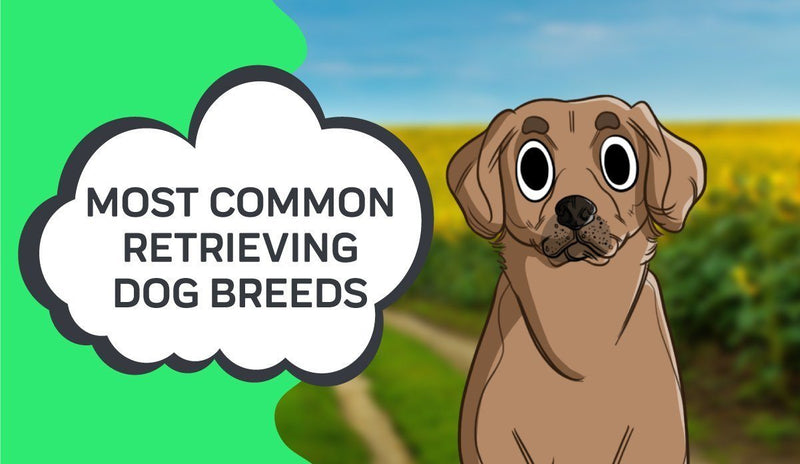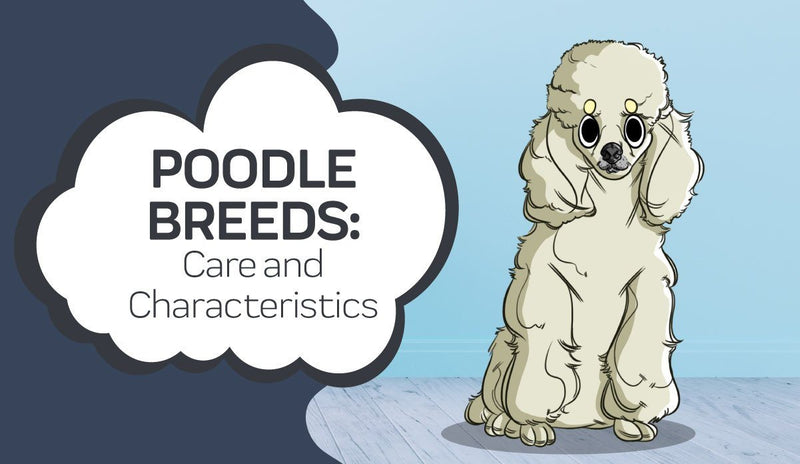Meet the Pocket Beagle, one of the cutest and friendliest little fluffballs around. We’ve talked about pocket and teacup dogs before, but the Pocket Beagle is a special case.
That’s because miniature Beagles go all the way back to Medieval times making them one of the first “teacup dogs” to exist - almost 1,000 years before the term was first coined.
So that begs the question, is the Teacup Beagle different from other teacup dogs? What’s the difference between Pocket Beagles vs. Beagles? Today we are exploring all the and more.
Let’s discover the world of the irresistible Pocket Beagle.
Basic Stats On The Pocket Beagle
|
Personality / Temperament |
Gentle, Sweet, Smart, Funny |
|
Feeding |
Low |
|
Colors |
Tricolor (white, brown, & black) and Two-Tone |
|
Size |
Height: 9-12 inches Weight: 10-15 pounds |
|
Lifespan |
12-15 years |
|
Good With Kids |
Yes, if kids are 10 or over |
History Of The Beagle
Miniature Beagles have a long history and were first popular in early England. The Glove Beagle was an extremely popular dog during Edward II (1307 AD - 1327 AD), Henry VII (1485 AD - 1509 AD), and Elizabeth I (1533-1603) reigns.
The Glove Beagle was said to be so small that it could fit into a glove and while it was the inspiration for today’s Pocket Beagle, they are not the same dog. In fact, the Glove Beagle otherwise, known as the Olde English Pocket Beagle stood shorter than the Pocket Beagle of today (9in vs. 11in.).
For whatever reason, the Olde English Pocket Beagle went extinct around the 19th century.
Appearance
Beagles are known for having a smooth and tricolor coat that is brown, white, and black, though, two-tone variations do exist.
They have floppy medium-large ears that sit flat against their face, speaking of which it is adorable with their large almond-shaped eyes. Their legs and body are both fairly short, and their tail sticks straight up, sometimes with a tilt inwards.
The Pocket Beagle weighs no more than 15 pounds, with many hovering around the 10lb mark and they stand 9 to 12 inches tall.
Temperament
Bubbly, outgoing, and head-strong are the three best terms to describe the personality of the Pocket Beagle. These dogs are simply a joy to be around with their larger than life cheery personality and friendliness.
They are incredibly loyal to their owners and super intelligent, but like the Siberian Husky, that big brain can quickly make them bored. As such, these dogs do well when you can give them a lot of attention.
If you can’t do that, think about giving them a furry companion they can spend their days with.
When you already have a dog in the house but want another, Beagles are a great choice. Their small size means they won’t take up much room. As well, they love being around other dogs, both big and small.
Exercise
Pocket Beagles are a bit easier to exercise than a regular-sized Beagle. Both are known for their high-energy, which makes them great hunting dogs.
The Pocket Beagle small size tuckers them out faster, but out of all the teacup dogs, the Pocket Beagle definitely has the biggest exercise demands. Most other miniature dogs are too fragile for hunting, but not the mini beagle.
Health
Beagles are generally very healthy dogs, however, like all other dogs there are some genetic health conditions they are prone to:
- Chondrodysplasia
- Cherry eye / keratoconjunctivitis sicca (KCS)
- Patellar luxation
- Glaucoma
- Epilepsy
- Deafness
- Cataract
- Hemophilia A
- Central progressive retinal atrophy (CPRA)
- Hypothyroidism
- Distichiasis
- Demodicosis
- Umbilical hernia
Lifespan
The average lifespan of a Beagle is 12 to 15 years, and a Pocket Beagle’s lifespan is similar though they tend to fall on the lower side of the scale due to their small size which often brings along complications.
They may experience more health issues, and even something like jumping off a couch can result in a serious injury.
Cost
Mini Beagles for sale typically run anywhere from $800-1200 depending on the breeder and where you live. When looking to buy a pocket beagle puppy, you need to be on the lookout for breeders looking to make a quick buck and scam you.
Pocket Beagles are just regular beagles that come out small. A good breeder will slowly breed down the size of these dogs over generations, but this takes time.
This has gotten shady breeders to breed the ruts of the litters together to better the chances of really small puppies. However, doing this can result in puppies that are weaker than their regular-sized brother and sister — make them more prone to illnesses and injuries.
2 Big Tips About The Pocket Beagle
1. Watch That Hunting Instinct
The beagle's instinct to hunt is a strong one, and this can get them into trouble if corrective training isn’t taken. First, you’ll need to be careful about having these dogs around animals similar to the ones they were bred to hunt like rabbits and other pocket pets. Cats seem to handle these dogs just fine, so no worries there.
Second, they will naturally want to bark a lot, so if you’re looking for a dog that rarely barks, you’ll want to look elsewhere.
Third, Beagles like digging and tearing things up so make sure to nip that in the bud as soon as you see it happening. Having a lot of toys around is a good idea because when they get bored is when the trouble starts.
Last, beagles become entranced by scents, and if they find something they like, they will take off to find it even if their owner is yelling at them to come back. When you’re out and about with your Beagle having a leash is essential.
2. Training Can Be A Mix-Bag
The Beagle has a lot of intelligence that’s mixed with a whole lot of energy, and this can make training stressful. They are quickly set off like a coil if they pick up a fun scent or noise. If you get too excited, they will get 10x more excited and forget all about training.
You’ll want to stay calm, patient, and keep up with daily training. If you do that, you’ll soon have a fantastically trained dog on your hands.
3 Facts About The Pocket Beagle
1. The Pocket Beagle Vs. The Olde English Pocket Beagle
While created to look like the Olde English Pocket Beagle, today’s Pocket Beagle is simply a regular Beagle that is smaller than normal.
2. They Go By Other Names
The Pocket Beagle also commonly referred to as Teacup Beagles, Toy Beagles, and Mini Beagles.
3. Silence Is Not On The Menu
Beagles like barking a lot, and where you can get most dogs to stay fairly quiet with training, don’t count on it with the Beagle who is easily one of the most vocal dogs around.
3 Common Questions About Pocket Beagles
1. Is The Pocket Beagle The Right Dog For Me?
Pocket or teacup dogs need special care due to their small size, which makes them more prone to injuries and illnesses. The Pocket Beagle is no exception to this. Now, they do seem hardier compared to other teacup dogs who are much too small and fragile to hunt.
Like all teacup dogs, their small size makes them get cold extremely fast, so you have to keep a constant eye on them. As well, they are prone to issues like diabetes, and this means they typically see more vet visits.
Families with children old enough to understand the fragility of their small size make ideal candidates.
2. How Can I Ensure My Teacup Beagle Stays Teacup-Sized?
Even when both parents are small, there is no guarantee that their puppies will be. As well, a small puppy can easily have a growth spurt and come out regular-sized. The only way you can ensure that your teacup pup will stay that way is rescuing or adopting.
3. Where Can I Find A Pocket Beagle Rescue?
From time to time, Pocket Beagles or just small beagles will pop up in rescues or shelters. Your best bet in finding one is to search your area for rescues that specialize in saving Beagles or hounds dogs.
Image Credit: thehappypuppysite.com
Sources:
Beagle
Dog Food
Pocket Beagle
Is This Mini Version Of The Popular Breed Right For You?
Everything You Need To Know About The Pocket Beagle
















